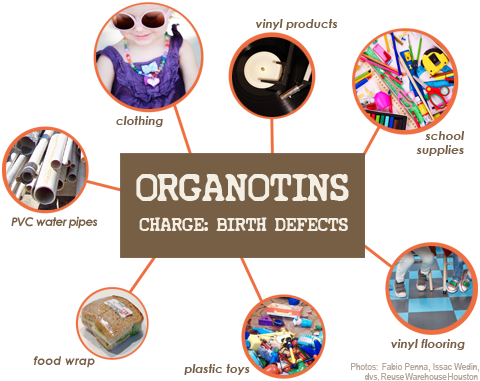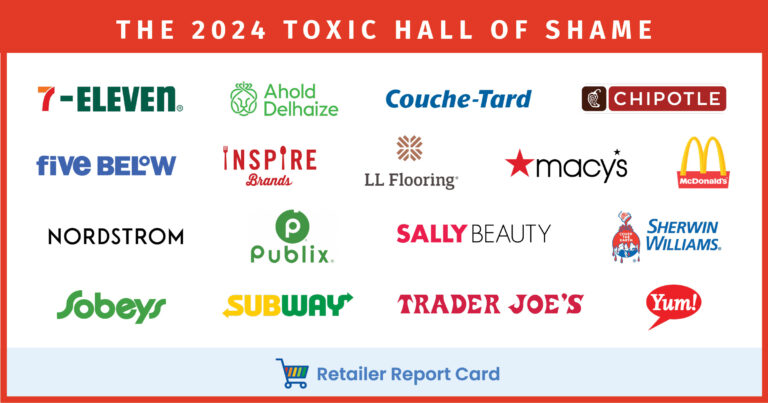Organotins

Organotins are a large class of chemicals. The most toxic forms have three tin-carbon bonds and have been widely used as biocides and pesticides. Highly toxic tributyltin (TBT) has been banned internationally in anti-fouling paints for ship hulls. Some other pesticide uses continue. Concerns are growing about organotins with one or two tin-carbon bonds, which are less toxic but not as well studied. Their widespread use in PVC (vinyl) and other plastics results in ongoing human exposure. Some are known hormone disruptors that may threaten human health.
Potential health effects include:
- Hormone (endocrine) disruption
- Obesity
- Immune system damage
- Nervous system damage
- Reproductive and developmental harm
- Toxicity to aquatic life
Commonly used in:
- Vinyl (PVC) products, including toys, school supplies, wallpaper, VCT floor tile, rain jackets, backpacks, shower curtains, etc.
- Textiles with plastisol prints, such as children’s clothing
- Food wrap
- PVC pipes (can contaminate drinking water)
- Other plastic products made from polyesters and polyurethane foam
- Some pesticides and preservatives
Consumer tips:
Avoid products made of polyvinyl chloride (PVC or vinyl) plastic. Safer alternatives to vinyl building products can be found at the Healthy Building Network. PVC-free products for your school and home have been identified by the Center for Health, Environment and Justice.
Minimize your use of other plastic and foam products, when practicable.
* Under our weak federal laws, it’s impossible for us to know all the uses of organotins in consumer products. As a result, this is not an exhaustive list of all products containing them.
Take Action


